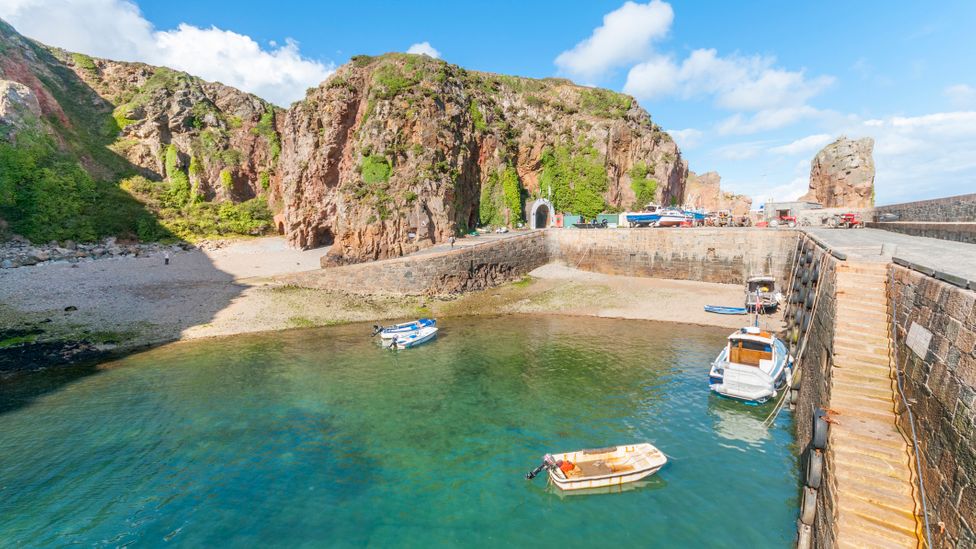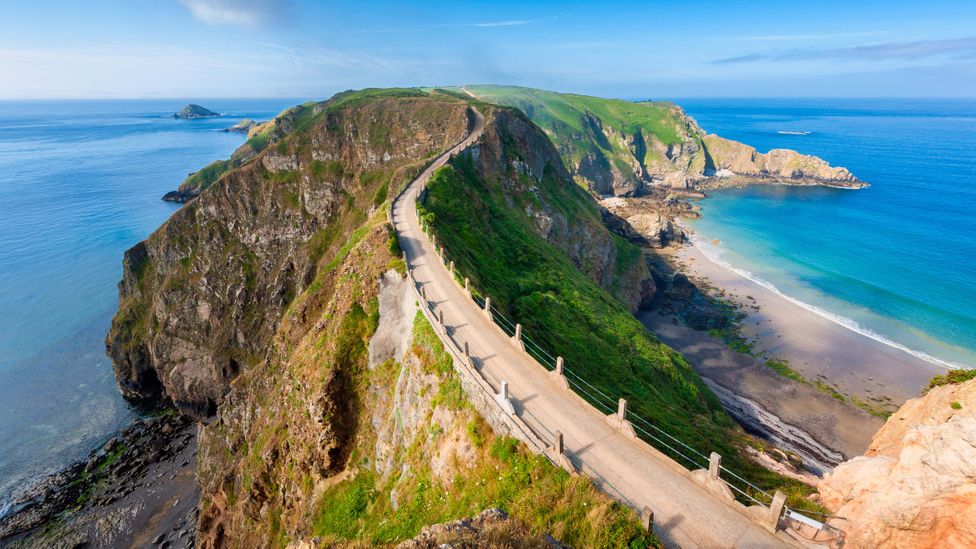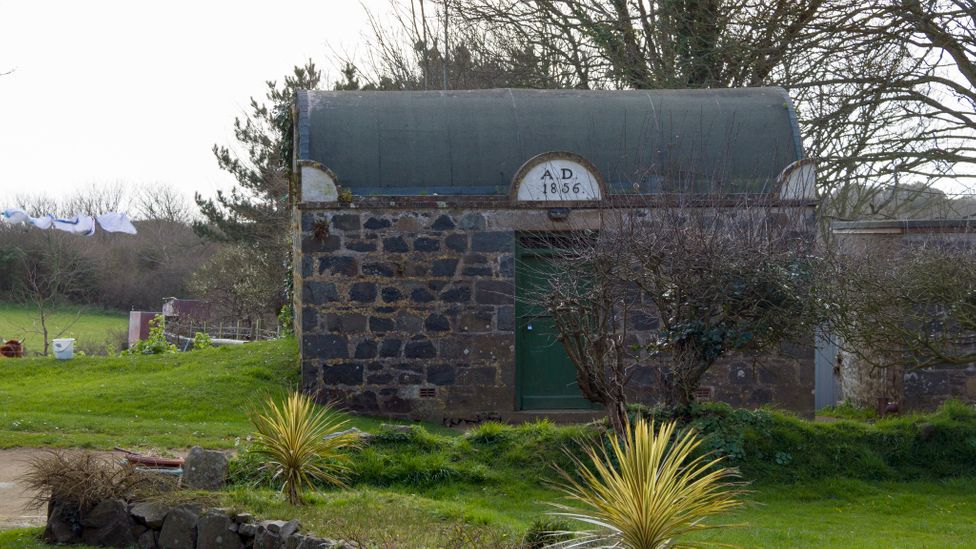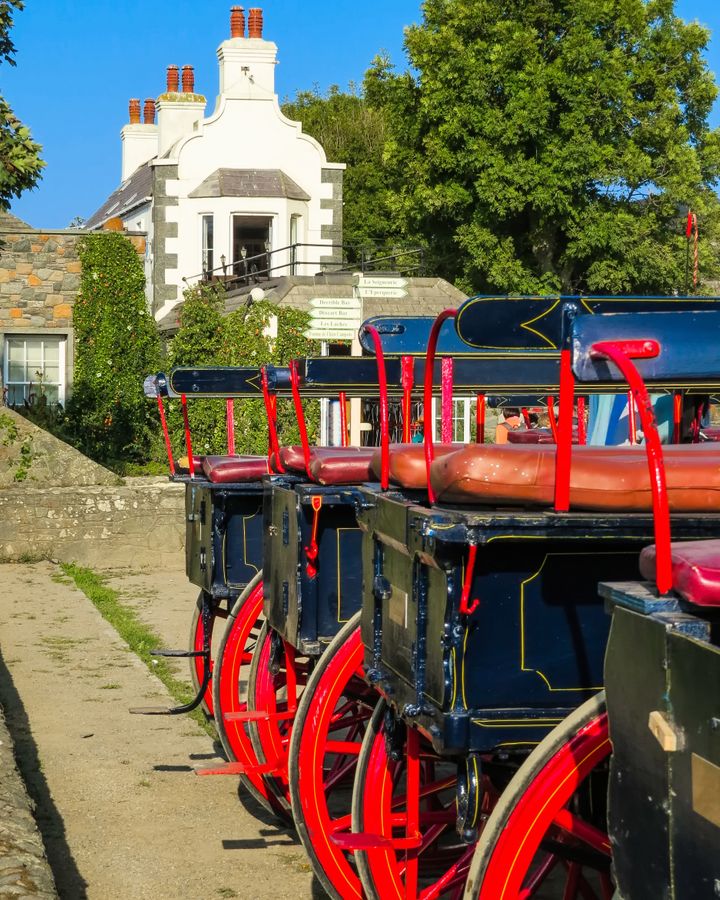The British island stuck in time
On the far-flung Channel Island of Sark, life is ingrained with feudal tradition – and driven by horse-drawn carts and wagonettes

The map of the British Isles is a cornucopia of islands, many of which are so transporting and preposterous they almost seem like make-believe.
Cradled by the Ardnamurchan peninsula in Scotland, Eilean Shona inspired Peter Pan author JM Barrie to dream up Neverland – tidal Loch Moidart on which it sits is almost a magic mirror. Another Scottish island, Inchconnachan, has an almost unbelievable population of wallabies, a marsupial predominantly native to Australia and New Guinea. Adrift off Anglesey in Wales, meanwhile, is Llanddwyn Island – the so-named “Island of Love”, where the Welsh celebrate Saint Dwynwen, the country’s patron saint of lovers.
And then there is a place in the Channel Islands – the scattered archipelago of British dependencies hooked off the coast of Normandy, France – where horse-drawn carriages are still a necessity and tradition comes over like the conventions of a Jane Austen novel.
This is the cherished island of Sark: a recently-changed fiefdom that’s still caught in medieval times.
Sark is the archetypical English seaside escape. Just three miles wide by 1.5 miles long, it is fringed by pale beaches and alive with the possibility of shore fishing and boat trips. Seabird-nested cliffs tumble to frothing waves, and its rural lanes are flanked by orchards, hedgerows and walled gardens pollinated by honeybees. There’s an ice cream shop overlooking Creux harbour, draft horses in emerald-green fields and sheep racing in summer. At nightfall, the Milky Way hangs low to meet the naked eye.

But that’s where the similarities to other English harbour towns end. Because here, 80 miles off the south coast of England, there are no streetlights, no paved roads, no cars, no traffic jams, no planes and almost no sound. Instead, antiquated bylaws prevail. And the locals here are very resistant to change.
It’s our island and we run it the way we want it to be run
“At every step, people on Sark are allowed to choose how we live,” Lieutenant Colonel Reginald Guille MBE told me. Guille was born on Sark during the island’s German occupation during World War Two in 1942, left when he was 15 to join the Royal Navy, then returned upon retirement in 1997. “As far as we can, we live a traditional, rural life. We have a dairy, sheep farms, market gardens. And life does change, but it is changing at the pace we want it to. It’s our island and we run it the way we want it to be run.”
Chief among Sark’s curiosities is that it has its own parliament, exchequer and set of laws and taxes. The UK government is still responsible for defence and international relations here, but the semi-autonomous island with its own United Nations country code (680) is a defiant outlier – it was the last feudal state in Europe, only dismantling its almost 450-year-old feudal system of hereditary government to allow for better democratic representation of its 500 residents in 2008.
Rewind to 1565, and Sark was little more than a den for pirates smuggling contraband from its rugged coves and bays. Back then, Queen Elizabeth I gifted the island to settlers from the neighbouring island of Jersey in return for them ridding the island of buccaneers. Soon after, the settlement permitted the establishment of Sark’s feudal system – a social system that largely died out in the previous century – and it still remains one of the world’s most archaic islands.

Today, Sark is run by Chief Pleas, the island’s parliament, which is made up of 18 conseillers, or representatives (currently there are three vacancies needing filled), a president and the seigneur – the island’s official leader whose French moniker means “head of feudal government”. The conseillers work on a voluntary, unpaid basis and, today, Guille is the Speaker of the Chief Pleas, leading all parliamentary business. On such a small, community-driven island, though, the 80-year-old has other quintessential roles – principally, he is chairman of Sark Cricket Club.
Islands that evolve because of their own peculiar circumstances often develop innovative methods to tackle societal needs, and Sark is no different. The island has its own private medical and education systems, as well as a privately owned electricity company, and islanders must raise £1.5 million annually to cover costs.
Tourism is really the driving industry here. We rely on travellers to help keep our way of life alive
This budget also finances the running of the island prison – unusually, inmates can only spend a maximum of 72 hours in one of two make-do cells before a seven-mile boat transfer to nearby Guernsey is required. Again, this must all be funded by islanders, but Sark’s reputation ensures the island’s finances are in rude health – it receives 60,000 visitors each summer.

“Tourism is really the driving industry here,” said Guille. “We rely on travellers to help keep our way of life alive.” Among the reasons to come, he lists seabird colonies, two pubs (The Mermaid Tavern and Bel Air Inn) and the night sky: Sark was declared Europe’s first International Dark Sky Community in 2011 and locals still use hand torches to help negotiate the rural paths after nightfall.
Another curiosity is the island’s horse-drawn carriages, and they help engage the questioning spirit of visitors. A coachman needs to have a command of horses, for instance, but also must complete a minimum of 10 days’ work experience and be at least 16 years old. Precisely how best to reverse a cart is a matter of some debate.
Sark’s reputation may well be built on tradition and fleeting nostalgia, but subtle advances are creeping into everyday life. The island’s doctor and first responders now use electric bicycles. There is an ambulance, but the driver cabin has been purposefully removed and the body is now pulled by a tractor. Behind the island’s Stocks Hotel, a permaculture garden produces organic vegetables that are fertilised using horse manure from the carriage company. Such a space has become a study in revitalising the island’s natural ecosystems.
Among the back-to-nature types who’ve chosen to come here is Helen Magell, the hotel’s landlady, primary school substitute teacher and owner of one of the carriage taxi businesses. In summer, she leads tours three times a week of the hotel garden. In winter, when Sark is recast as a “ghost island”, as she put it, she embraces the island’s quiet social side, signing up for events like the darts league and pub quizzes.

I asked her if it is ever difficult being so cut off from the rest of the British Isles or from neighbouring Guernsey. “I find it disconcerting when I go somewhere else without knowing anyone,” she replied. “Here, it’s ‘hello, hello’ in the morning and ‘good night, good night’ to people in the complete dark when coming home from the pub.”
Other characters drawn to Sark’s time-stopped traditions are Jason and Katharine Salisbury, the island’s sole dairy farmer and vet, who moved from the county of Suffolk to the island last year. It was an expensive business freighting nine dairy cows across the English Channel, but the cargo now gives islanders fresh milk and cream for the first time in years.
“We feel like heroes – when we arrived the dairy was a lifeline,” both Jason and Katharine told me. “We’d been here before on holiday and always said it was the kind of place we’d love to live. No-one ever really does that in real life, though. Yet, here we are.”
Whether Sark is actually the most peculiar island in the British Isles or not, it’s almost certainly where the car-free, carefree pace of life is at its slowest. In a world that often seems to have lost its way, Sark is rich with community and tradition. Its greatest hope is that it continues to be as meaningful to visitors as it is for those who live here, despite the forward march of time.
-BBC









